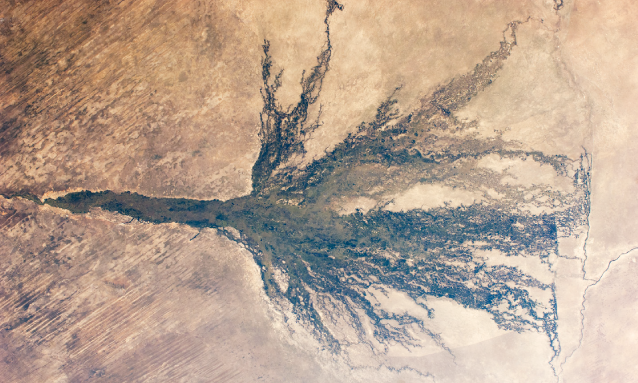
Safari Destinations, a local destination management company for Botswana and Zimbabwe, expects 2020 to deliver exceptional game viewing thanks to the shifting state of the Okavango Delta. The DMC consulted expert and top wildlife researcher, Chris Winterbach, about what to expect.
Safari Destinations Managing Director Lorraine Potter says the Okavango Delta is an incredibly dynamic ecosystem, with fluctuating water levels causing vegetation and habitats to adapt in short time spans.
“It has historically always experienced wet and dry spells, which last roughly 30 years each. As Winterbach explained to us, we are currently in the tail end of a wet cycle and the exceptionally low rainfall at the beginning of the year is not unusual, according to historical data. The current predictions are better rains this year and a bigger flood in 2020.” says Potter.
The current drier conditions are not necessarily bad news. During exceptionally high flood levels in the early 2000s, large tracts of the Delta were flooded for exceptionally long periods. This meant that the grazing on the floodplains, once the water recedes, was no longer available for the herbivores and the nutritious grass was replaced by unpalatable sedges. Herbivores actually declined over this period, even though the Delta was at its fullest and prettiest.
Carina Grüninger,joint MD of Safari Destinations, says clients have been reporting excellent sightings throughout 2019 and that these will continue into 2020. This year’s exceptionally low floods mean a lot of those floodplains have become accessible and the sedges will die back so that grass can grow again, making the land once again suitable for grazing. The herbivore populations will increase, thanks to the extra food, which in turn positively affects the predators. So, while there may not be picture-book Delta water activities everywhere, there has been exceptional game viewing instead.
The upper, or northern Delta has received its usual annual floods, albeit in lesser volumes, which means that conditions there haven’t changed as much. The lower, or southern Delta is most affected due to the lack of flooding but the new grazing will enhance the game-viewing experience. The shift in flooded areas between the upper and lower Delta is likely directly related to the earthquake Botswana experienced in 2017. Due to the sandy substrate the Delta lies on, even a small shift is enough to divert water flow.
Source: tourismupdate.co.za



